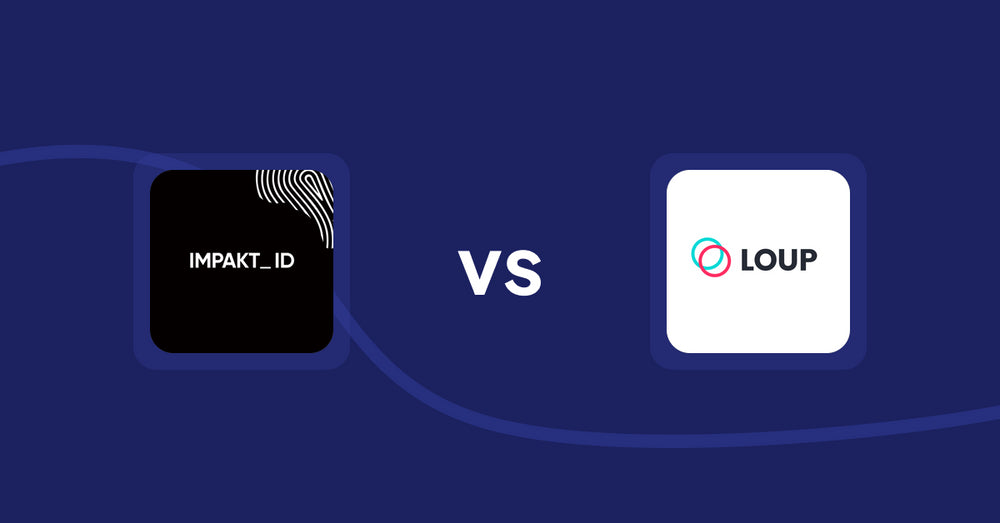Shopify Metafield Apps: Helium Customer Fields vs Power Tools Bulk Edit Tags

Table of Contents
- Introduction
- How Does Helium Customer Fields Work?
- How Does Power Tools Bulk Edit Tags Work?
- How Much Does Helium Customer Fields Cost?
- How Much Does Power Tools Bulk Edit Tags Cost?
- Cost Analysis: Helium Customer Fields vs. Power Tools Bulk Edit Tags
- User Reviews & Customer Support Insights
- Integration and Compatibility Comparison
- Conclusion
Introduction
In the world of e-commerce, the importance of efficiently managing customer data cannot be overstated. Studies indicate that businesses leveraging fully integrated customer data can boost their engagement by up to 350%. Metafield apps play a crucial role in enhancing user experience by allowing merchants to collect and utilize specific customer information creatively. This is where Helium Customer Fields and Power Tools Bulk Edit Tags enter the scene.Helium Customer Fields focuses on creating customized customer forms to gather vital information, while Power Tools Bulk Edit Tags simplifies the process of managing product tags. Both applications offer ease of integration with platforms, but they cater to distinct requirements and functionalities that can affect the overall experience of an online store. Let’s dive deeper into how each app works and evaluate their capabilities.
How Does Helium Customer Fields Work?
Helium Customer Fields is designed to provide a comprehensive solution for merchants looking to personalize their customer interactions. With its extensive options in Metafield, it helps business owners create unique registration forms tailored to collect crucial data from their customers.Key Features:
-
Drag-and-Drop Form Builder: With a user-friendly interface, merchants can quickly create various forms without needing to code. This feature is beneficial for startups and small to medium businesses that may have limited technical resources.
-
Account Approval & Email Verification: Allows businesses to manage wholesale or B2B customer accounts by approving them first. This is particularly useful for larger enterprises that require validation before customer onboarding.
-
Custom Fields (Metafields): Merchants can gather specific information by adding custom fields such as birthdays or interests. Businesses of all sizes can take advantage of this capability to enhance customer relationships.
-
Customer Tagging Rules: The automatic tagging functionality organizes customers based on form responses. For instance, a retailer could group customers interested in specific product categories, allowing for personalized marketing strategies.
-
App Integrations: Helium Customer Fields supports various integrations with third-party tools, enhancing its ability to sync customer data across marketing platforms. This is advantageous for any business looking to improve workflow efficiency.
These features together enable businesses to craft a personalized shopping experience, improving customer satisfaction and retention. For example, a small business can use custom fields to capture favorite product categories, allowing them to send targeted promotions that resonate with individual customers.
How Does Power Tools Bulk Edit Tags Work?
Power Tools Bulk Edit Tags focuses on streamlining the process of managing product tags in an e-commerce store. Through a straightforward system that allows bulk additions and removals of tags, it caters particularly to businesses that deal with extensive inventories.Key Features:
-
Bulk Tag Management: The ability to add or remove tags in bulk saves significant time, especially for businesses with large product catalogs. This feature is helpful for all business sizes, especially those pushing numerous products.
-
Speed Tag Feature: This functionality allows merchants to quickly tag products by simply clicking on the tags they wish to assign. Startups and small enterprises that may not have a robust tagging strategy can utilize this feature to enhance their product visibility swiftly.
-
Tag Updates Based on Rules: Power Tools helps businesses to update product tags based on specific conditions or combinations of existing tags. This adaptability is particularly beneficial for larger businesses aiming to keep their product categorization consistent and relevant.
By effectively managing product tags, businesses can improve product discoverability, which is crucial for maximizing sales. For instance, a medium-sized enterprise can quickly remove outdated tags from a collection, ensuring customers only see relevant products.
How Much Does Helium Customer Fields Cost?
When selecting a Metafield app, cost-effective solutions can significantly influence the decision-making process. Helium Customer Fields offers several pricing tiers to cater to the varying needs of businesses.-
Lite Plan ($12/month): This basic plan includes all standard Shopify fields, account approval, email verification, and the ability to sync up to 5,000 customers with two customizable forms. Ideal for startups seeking simple solutions.
-
Pro Plan ($26/month): In addition to Lite features, this plan introduces custom fields, customer auto-tagging, and up to 10,000 customers. A fitting option for small to medium businesses looking to increase their data collection capabilities.
-
Advanced Plan ($60/month): Offered are all Pro features alongside priority support and REST API access, allowing for syncing up to 50,000 customers and unlimited forms. Large enterprises needing extensive customization find this plan beneficial.
When examining the value proposition of the Lite and Pro tiers, many growing businesses can maximize customer engagement while keeping costs manageable.
“It is important to note that you can always reach out to our team and we can create a custom pricing plan to suit your needs and your budget. Schedule a call via this link and we’ll come up with the best solution for you and your business.”
How Much Does Power Tools Bulk Edit Tags Cost?
Though Power Tools Bulk Edit Tags has garnered attention for its capabilities, it appears to lack defined pricing tiers provided in the available data. Understanding the implications of cost-effective solutions is essential regardless.Typically, a robust pricing structure would emphasize features like bulk editing capacities and efficiency in managing tags. However, Power Tools must be approached with caution without clear pricing that reflects its full value to different audiences, from startups to large-scale retailers.
A lack of detailed plan descriptions may indicate hidden costs or requirements, which could be a deterrent for businesses craving transparency in their investment decisions.
Cost Analysis: Helium Customer Fields vs. Power Tools Bulk Edit Tags
When comparing Helium Customer Fields and Power Tools Bulk Edit Tags, the structured pricing of Helium offers a clearer value proposition. Each plan corresponds well with features that match distinctly sized business needs while being straightforward about costs.Power Tools's absence of definitive pricing may lead to uncertainties, causing businesses to reconsider investing without a predictable budget.
In contrast, Helium Customer Fields appears to offer better cost efficiency for organizations that need effective Metafield solutions, particularly for those seeking customizable forms and customer engagement strategies.
User Reviews & Customer Support Insights
Is Helium Customer Fields good?
Helium Customer Fields has earned an exceptional 5-star rating from 64 reviews, reflecting highly satisfied users. Most users highlight its intuitive drag-and-drop builder and the flexibility it offers in customizing forms. Merchants particularly appreciate the efficient management of customer information, which directly enhances customer engagement.Is Power Tools Bulk Edit Tags good?
With a solid average rating of 4.9 stars from 120 reviews, Power Tools Bulk Edit Tags is also well-received. Users commend its ease of use but might critique it for lacking integrations and support. This could be a potential drawback for businesses that highly value responsive customer support and seamless integrations with other platforms.Customer Support Feedback: Good customer support can significantly influence user ratings, especially for applications requiring configuration. As Power Tools did not explicitly mention this, concerns about user support could contribute to lower overall satisfaction.
User Preference: Helium Customer Fields or Power Tools Bulk Edit Tags?
Given the 5-star rating against Power Tools Bulk Edit Tags’s 4.9-star rating, it is evident that Helium Customer Fields comes across as a more favorable option among users. Its robust feature set, user-centric design, and exceptional support reflect greater effectiveness in managing Metafields.The differences in ratings may stem from the features both apps offer and their overall utility in enhancing the user experience, making Helium Customer Fields a more appealing choice.
Integration and Compatibility Comparison
Helium Customer Fields Integrations:
Helium Customer Fields integrates seamlessly with major platforms like Shopify Flow, Zapier, Alloy, and Slack. This integration capability enhances data synchronization, allowing merchants to use customer data efficiently across different applications.Power Tools Bulk Edit Tags Integrations:
While Power Tools Bulk Edit Tags does not specify its integrations, the absence suggests limitations compared to Helium. Users might find it less flexible for expanding their meta management strategy directly through other applications. This gap may hinder its overall efficiency for businesses that rely heavily on synergy with various tools.Conclusion
Both Helium Customer Fields and Power Tools Bulk Edit Tags offer robust solutions for customer and product data management. However, Helium Customer Fields stands out due to its user-friendly design, comprehensive feature set, clear pricing structure, and superior customer support. This alignment makes it a more cost-effective choice for businesses of varying scales seeking effective Metafield solutions. With a perfect 5-star rating, it has become a go-to tool for enhancing customer engagement and overall business performance.Still Searching for the Perfect Customization Solution?
Stop searching and start thriving with Accentuate Custom Fields! This powerful metafield management app supercharges Shopify’s native features, giving you the tools to create a truly personalized customer experience.
Why Choose Accentuate Custom Fields?
- Advanced Customization: Unlimited field definitions, logical grouping, and custom layouts make your store one-of-a-kind.
- Enhanced Editor Experience: Effortlessly edit variant metafields, use advanced HTML and markdown editors, and sync field definitions between stores.
- Flexible Management: Import/export capabilities, automatic tagging, and comprehensive support for Metaobjects and versioning.
- 24/7 Support: If you have any questions or need assistance, our team is available around the clock to help with any custom modifications to suit your store.
Join over 12,000 merchants, including top Shopify Plus stores, who trust Accentuate for their customization needs. With a stellar 4.9-star rating, Accentuate is the go-to tool for advanced CMS needs, offering unmatched flexibility and control over your store’s content. Elevate your Shopify store with high-quality content that boosts customer experiences and conversions. Tell your story, showcase your products, and create an engaging customer journey with ease.
Experience the Accentuate difference and watch your Shopify store thrive!
Accentuate vs Competition
Explore how Accentuate Custom Fields stands out. Whether you’re aiming to customise your storefront, streamline operations or improve content management, see how we compare against the competition
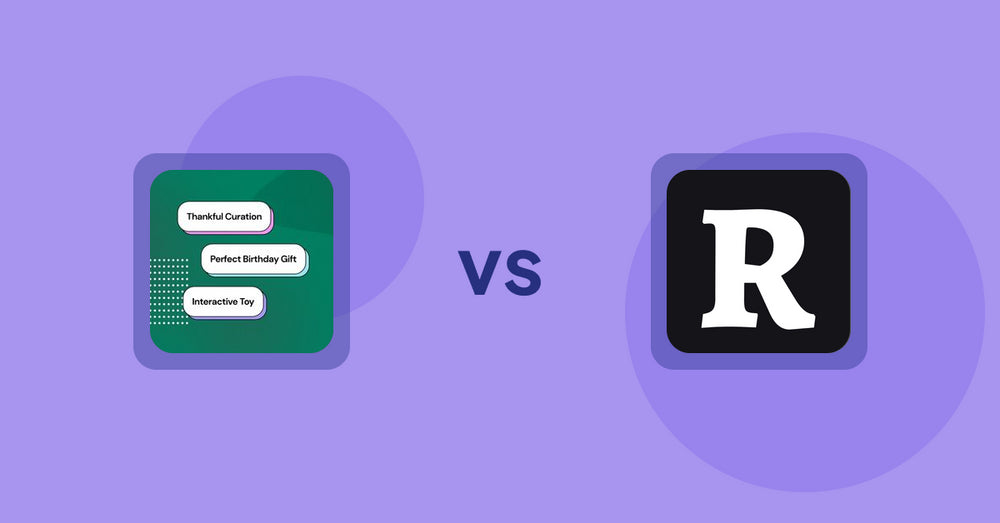
Shopify Product Display Apps: FeatureFrame ‑ Pretty Product vs. AI SEO: Top Product Features
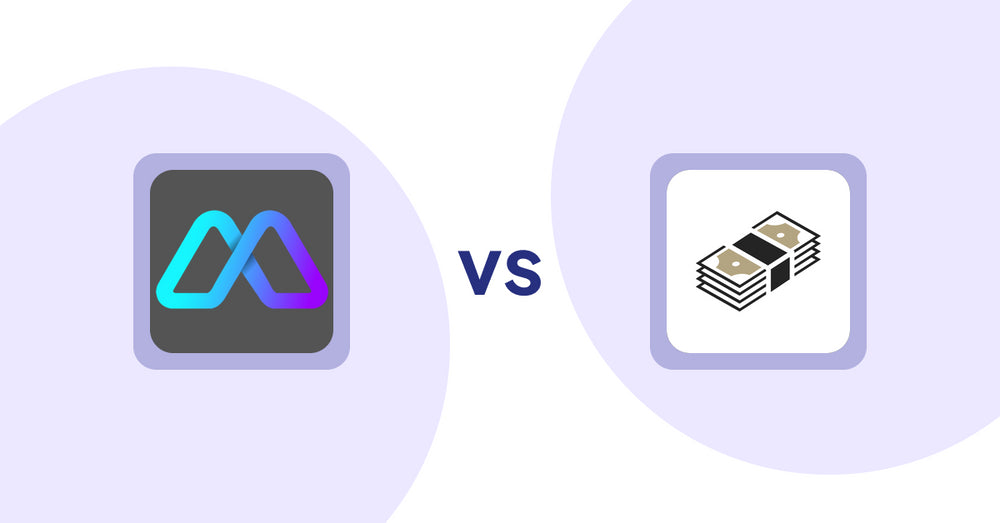
Shopify Product Display Apps: Metadrob: Create Virtual Store vs シンプルクラウドファンディング|お手軽自社クラファン
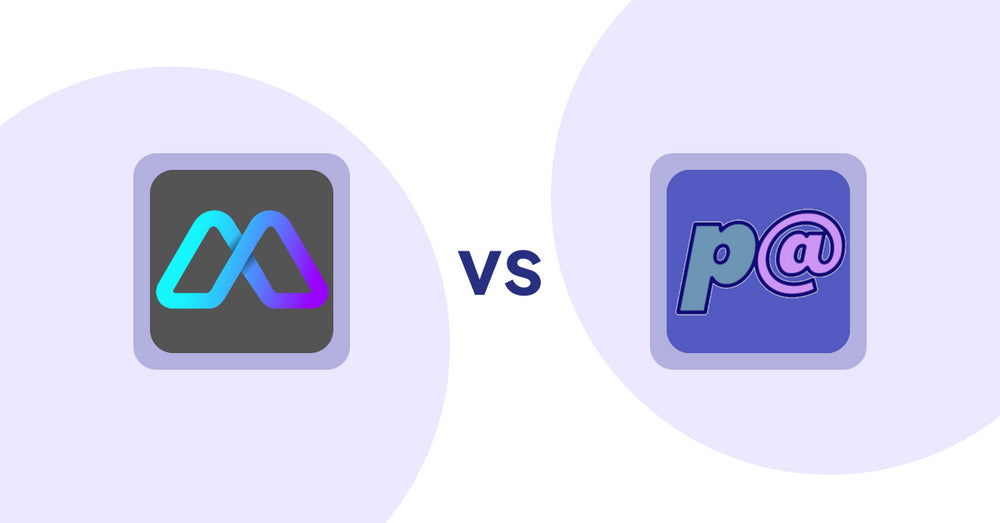
Shopify Product Display Apps: Metadrob: Create Virtual Store vs Parameterizer
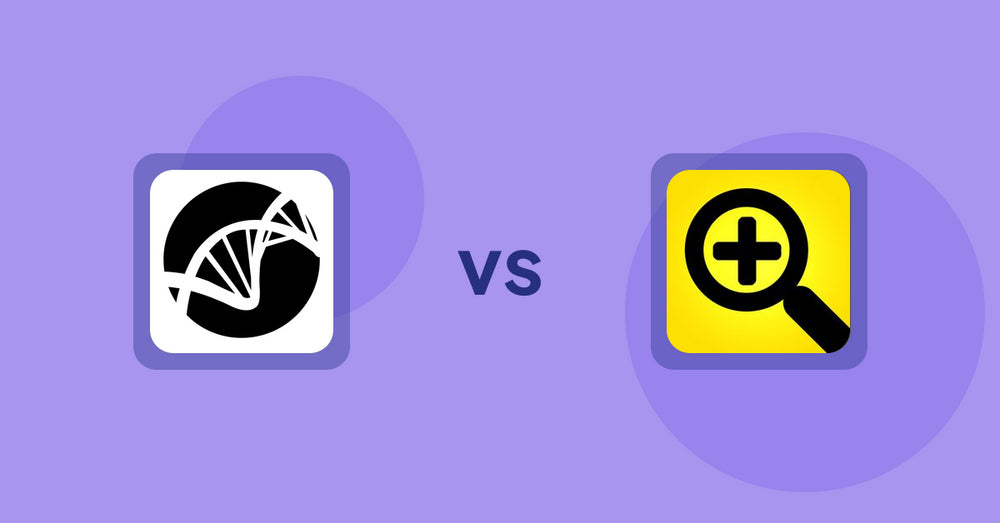
Shopify Product Display Apps: Bike Matrix vs. Fast View: Fastest Quick View
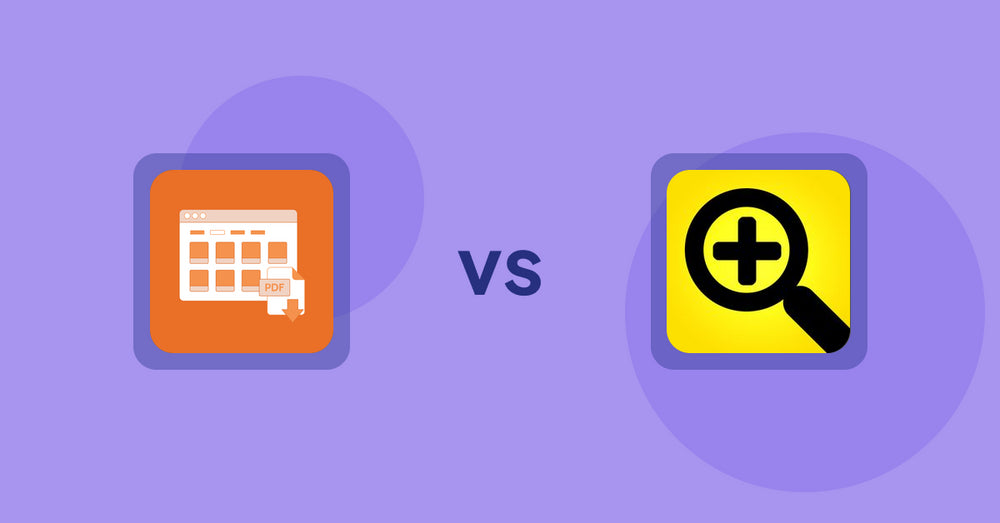
Shopify Product Display Apps: Meetanshi PDF Product Catalog vs Fast View: Fastest Quick View

Shopify Product Display Apps: UR: Smart Ranking vs Sortyfi Collection Merchandise
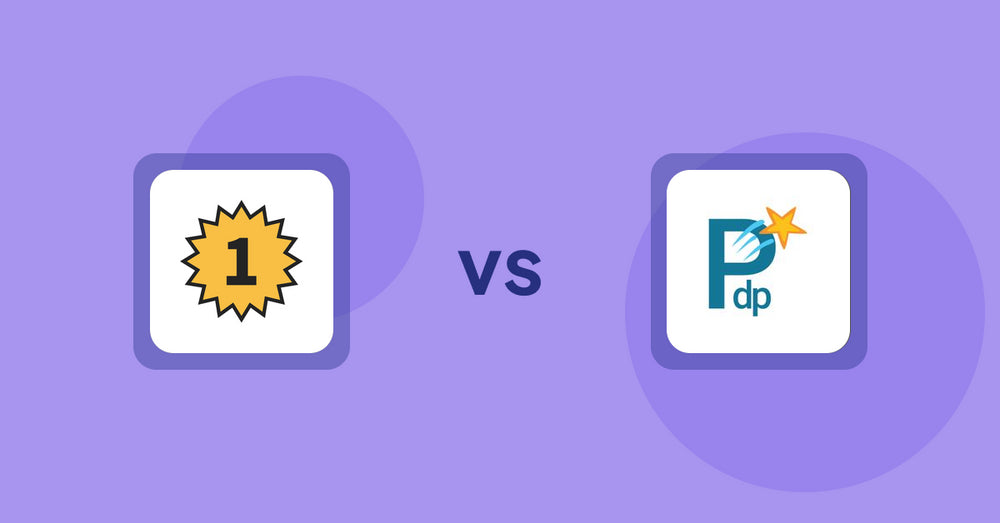
Shopify Product Display Apps: UR: Smart Ranking vs PDP Star

Shopify Product Display Apps: Menulog vs Reelify ‑ Shoppable Reel Video
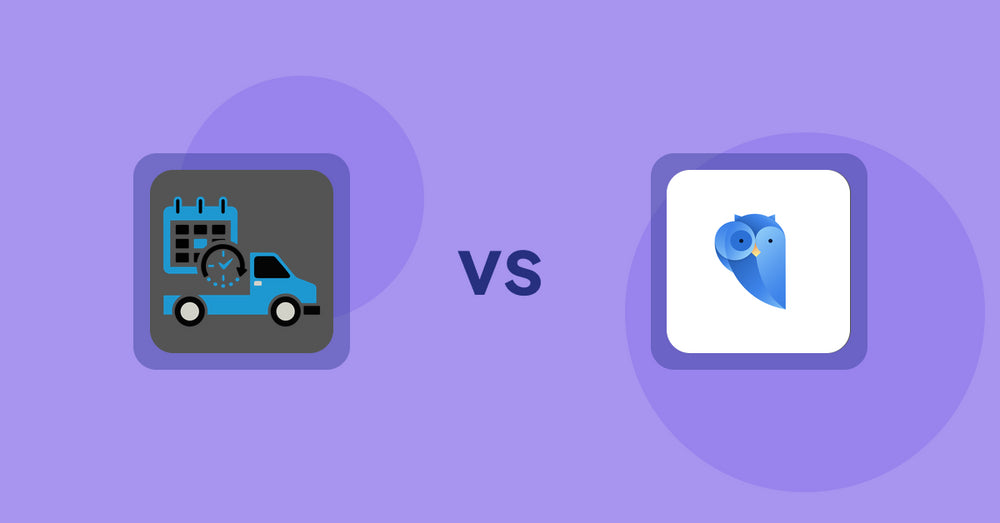
Shopify Product Display Apps: H3 Estimated Delivery vs Findify Search & Merchandise
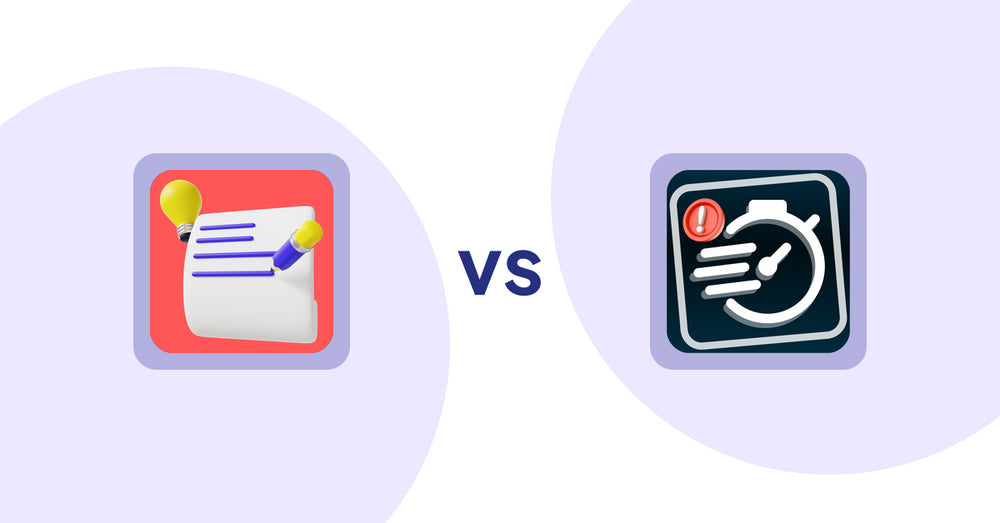
Shopify Product Display Apps: Wordo ‑ ChatGPT AI Description vs Urgency! Low Stock Counter
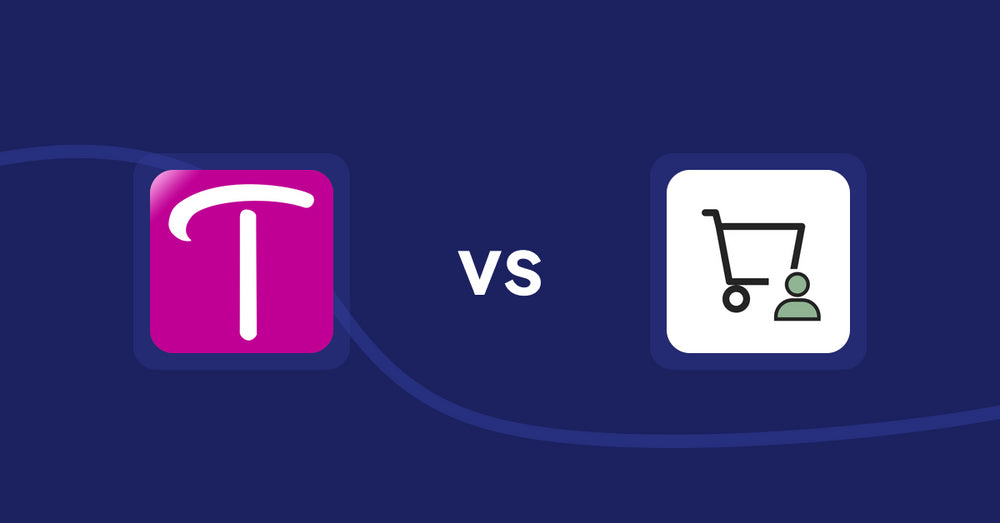
Shopify Product Display Apps: WS Transparency vs シンプル会員注文割引|お手軽ログインセール設定
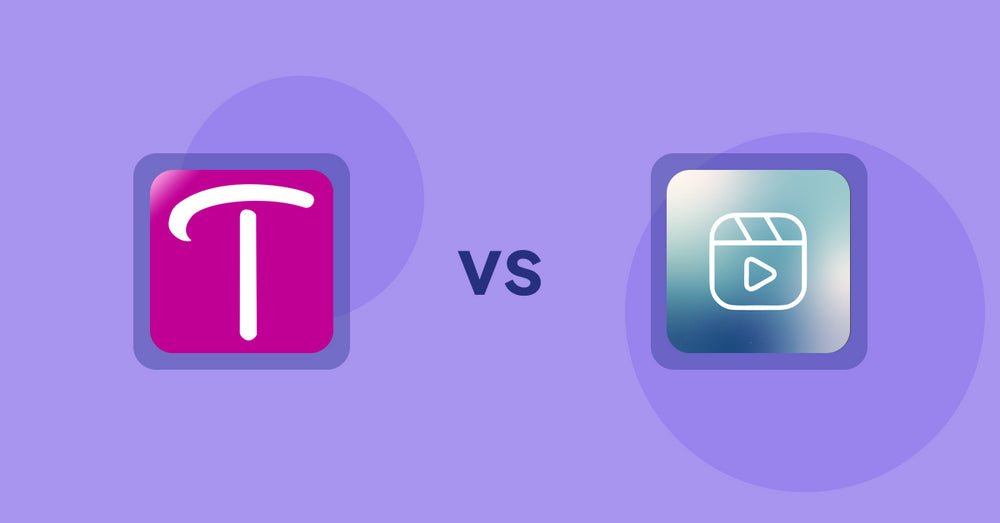
Shopify Product Display Apps: WS Transparency vs Reelify ‑ Shoppable Reel Video
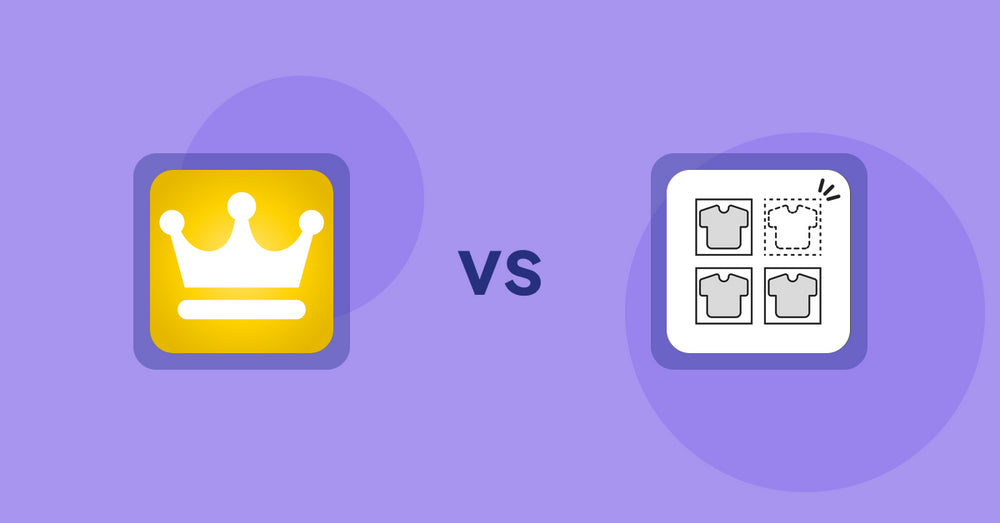
Shopify Product Display Apps: Awesome Ranking vs シンプル売り切れ非表示|在庫切れ商品の表示変更
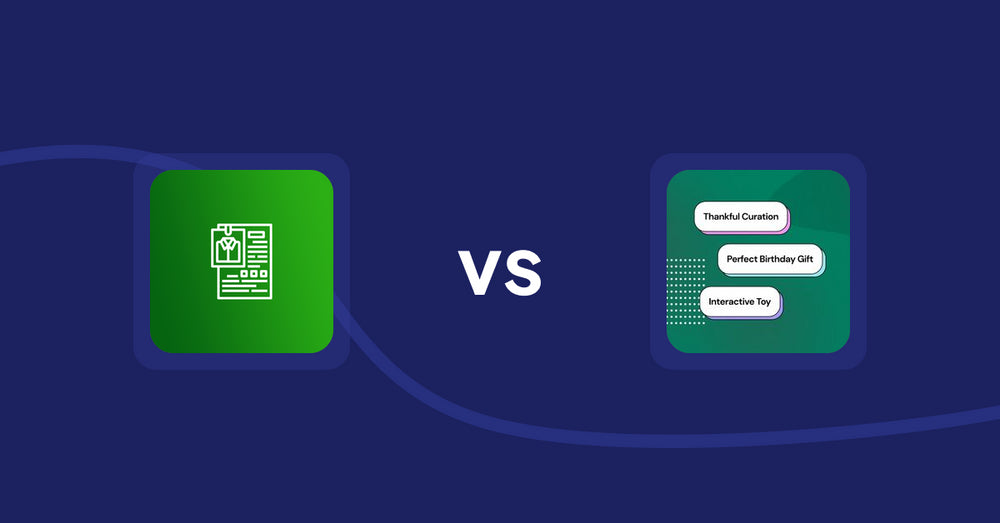
Shopify Product Display Apps: OC Product Size Chart vs FeatureFrame ‑ Pretty Product
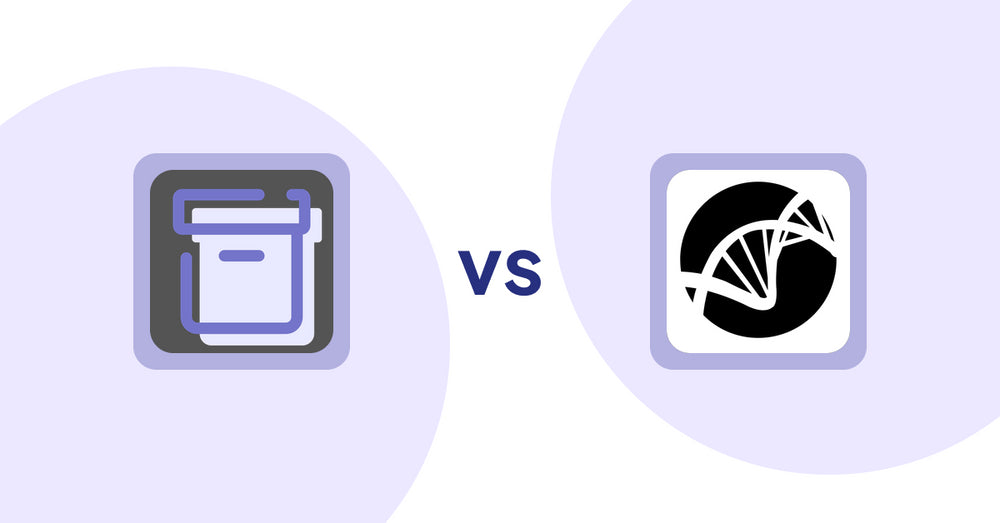
Shopify Product Display Apps: Shelfify vs Bike Matrix
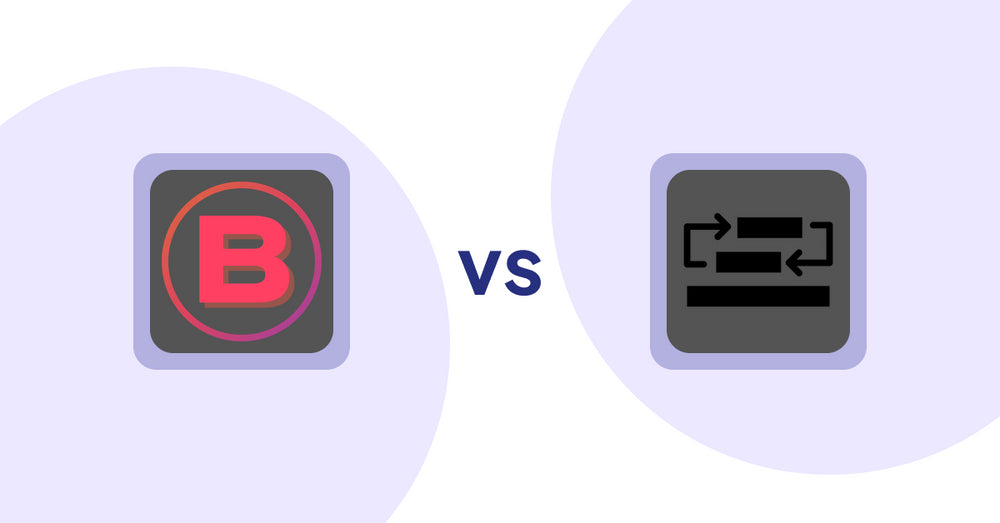
Shopify Product Display Apps: Banter Stories vs Sortyfi Collection Merchandise
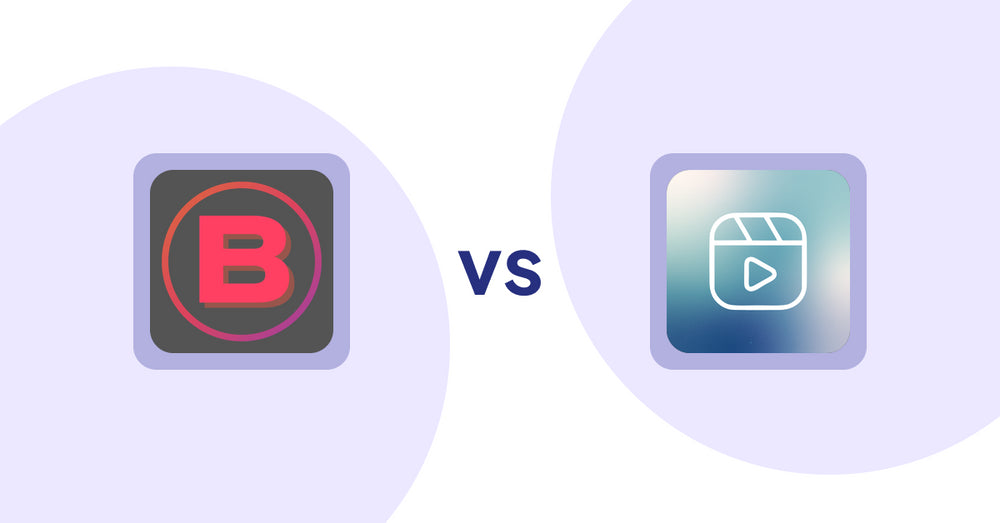
Shopify Product Display Apps: Banter Stories vs. Reelify ‑ Shoppable Reel Video
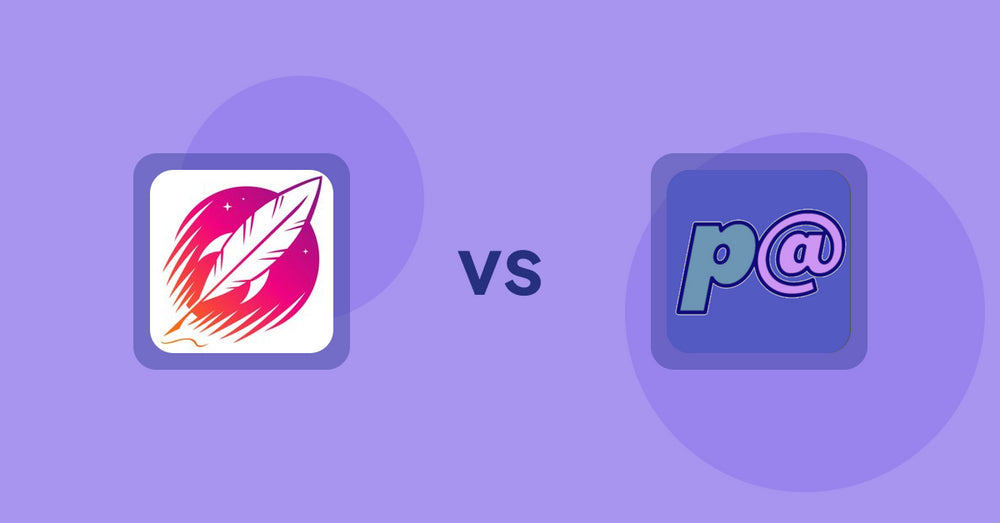
Shopify Product Display Apps: Wordsmith: Content Generator vs Parameterizer

Shopify Product Display Apps: Wordsmith: Content Generator vs Reelify ‑ Shoppable Reel Video
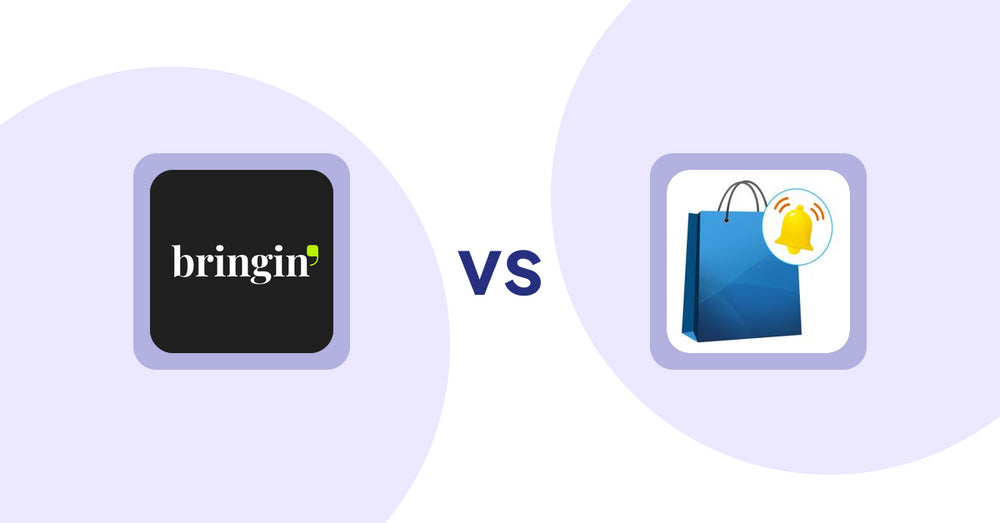
Shopify Product Display Apps: Bringin vs CartBar ‑ Product Purchase Bar
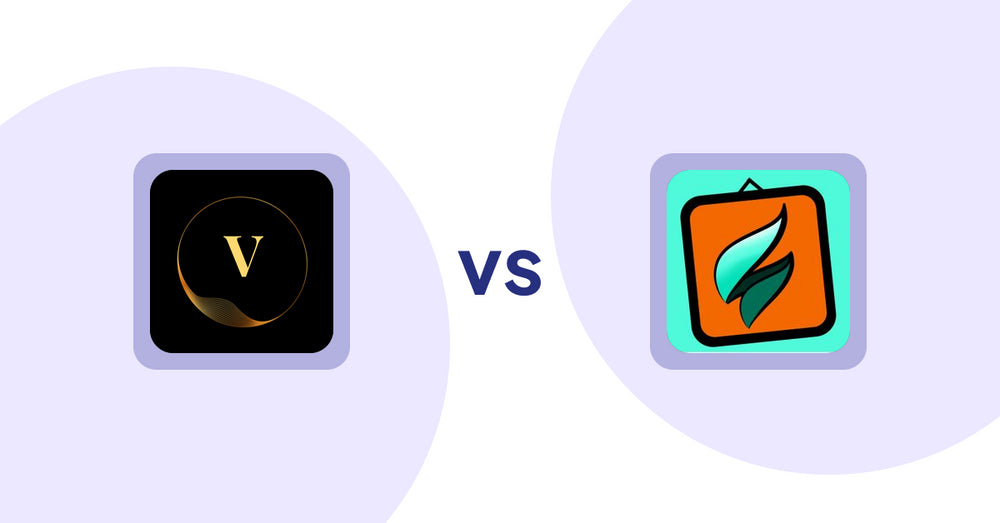
Shopify Product Display Apps: ProductTube vs SMART ‑ Art Product Builder
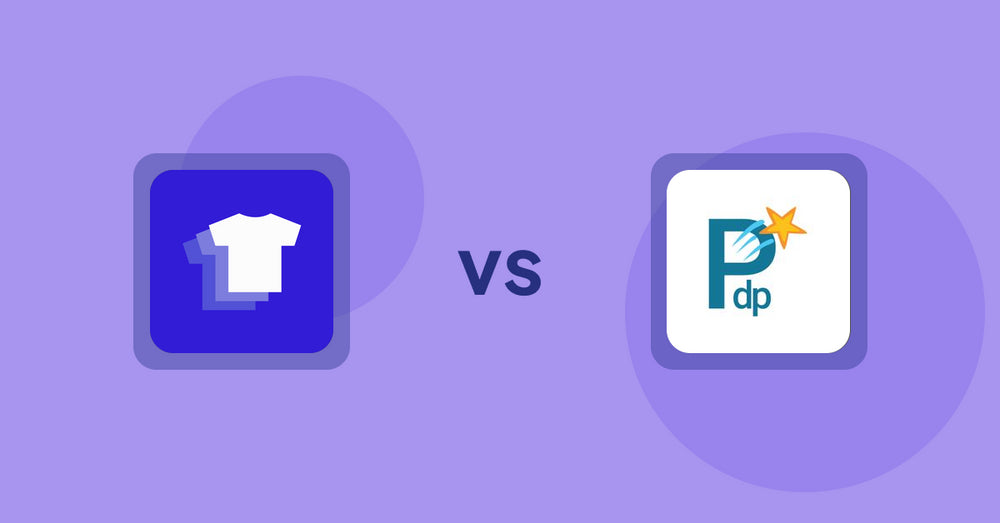
Shopify Product Display Apps: Xpander vs PDP Star
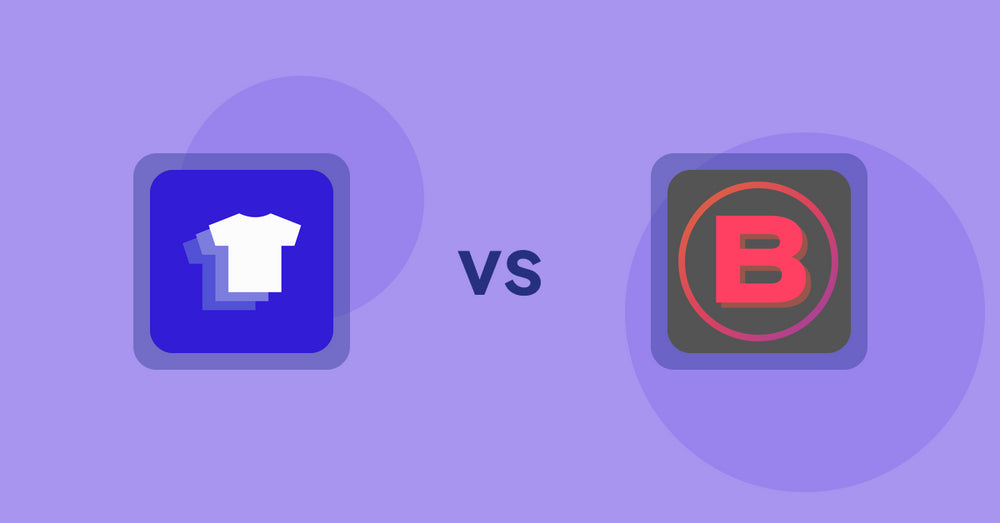
Shopify Product Display Apps: Xpander vs Banter Stories
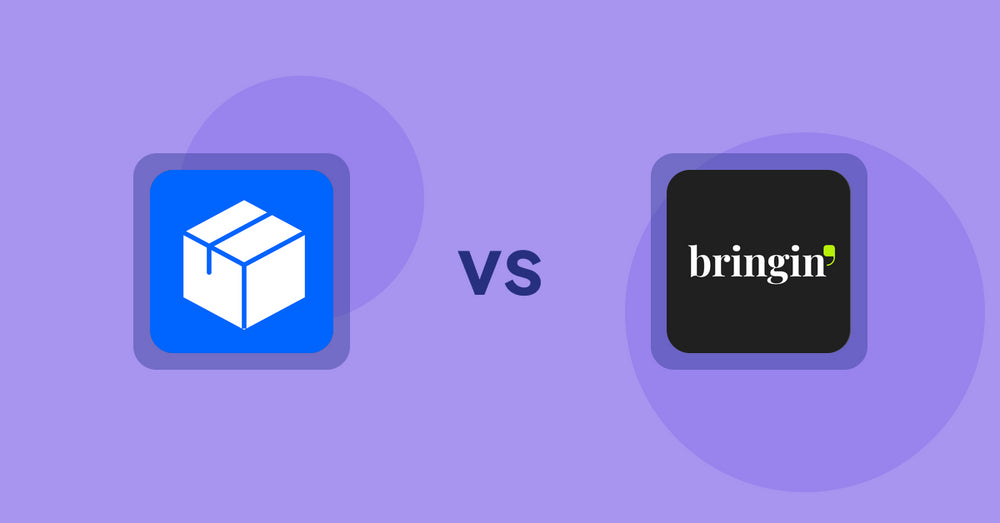
Shopify Product Display Apps: Wonderful Widgets vs Bringin
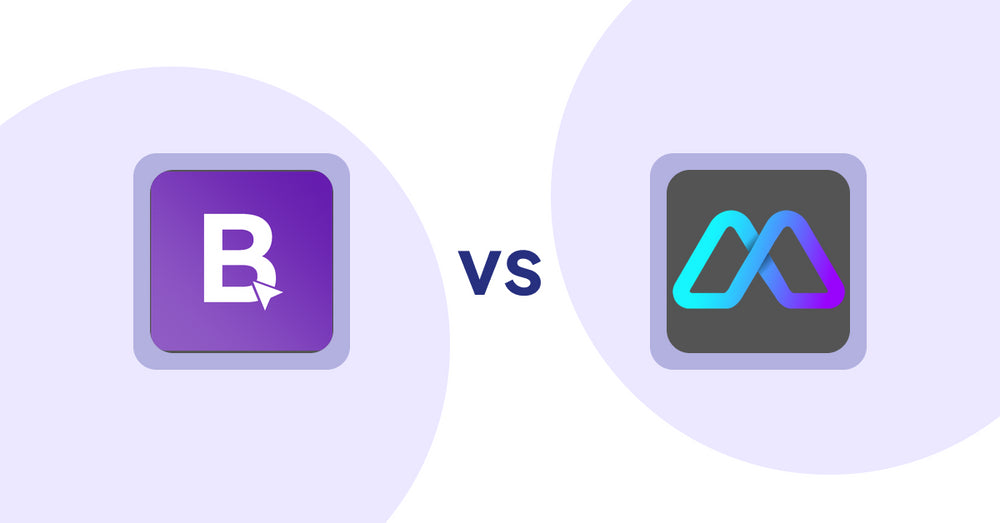
Shopify Product Display Apps: BookE - Rent Property & Service vs Metadrob: Create Virtual Store
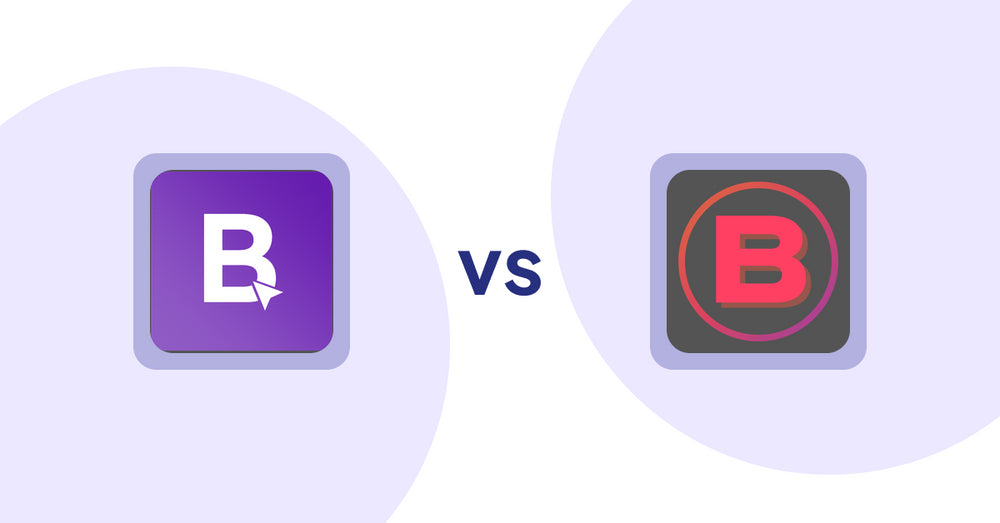
Shopify Product Display Apps: BookE ‑Rent Property & Service vs. Banter Stories
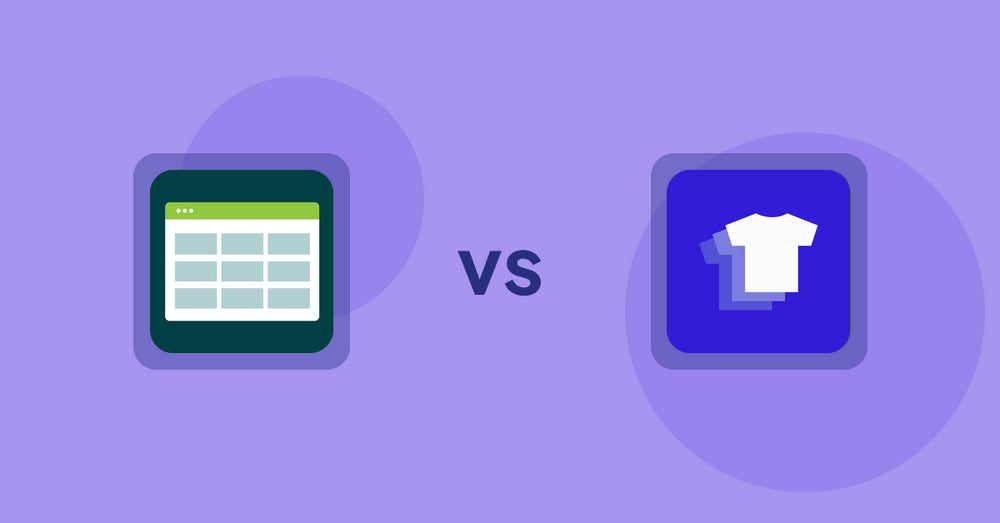
Shopify Product Display Apps: Product Table vs. Xpander

Shopify Product Display Apps: Selling Fast vs CartBar ‑ Product Purchase Bar
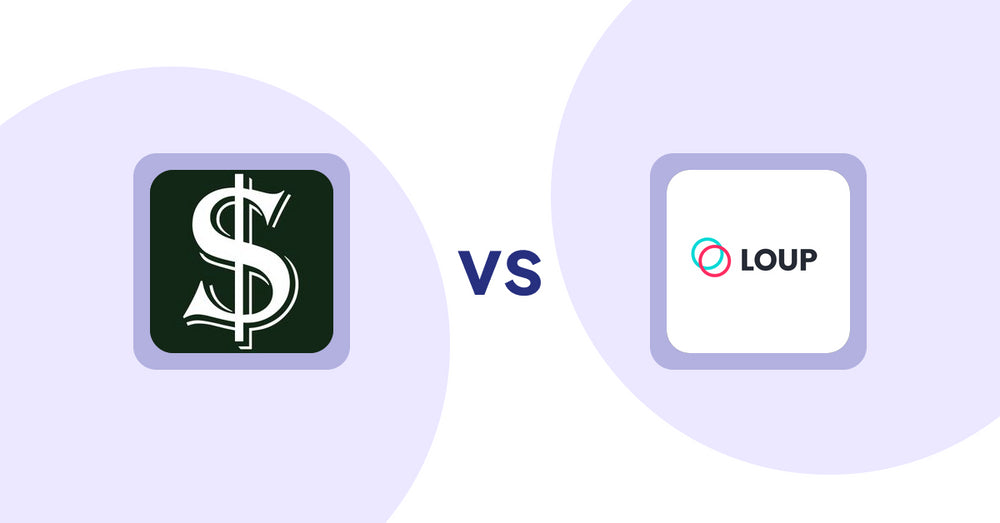
Shopify Product Display Apps: Selling Fast vs. Loup: Sell on Instagram

Shopify Product Display Apps: Selling Fast vs. Findify Search & Merchandise

Shopify Product Display Apps: Selling Fast vs. Aiuta
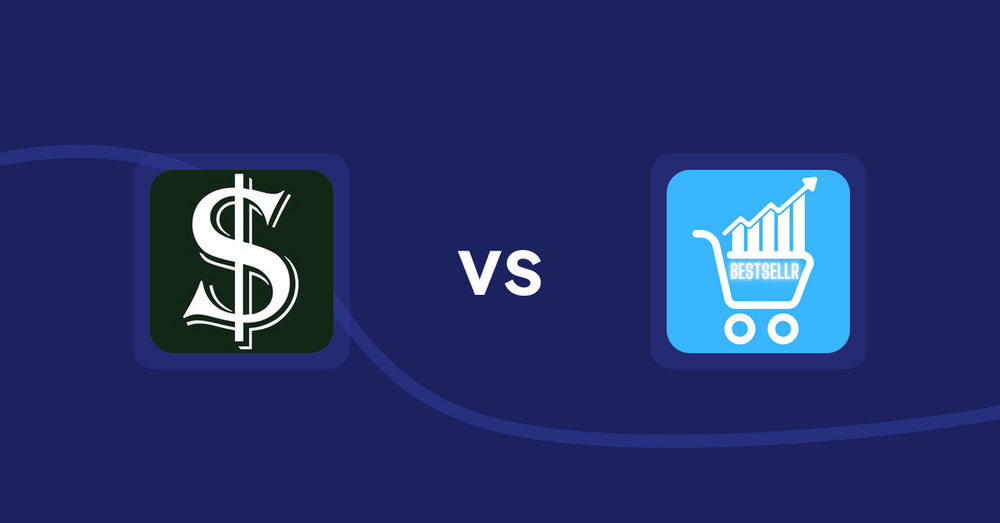
Shopify Product Display Apps: Selling Fast vs Bestsellr

Shopify Product Display Apps: Selling Fast vs ProductTube
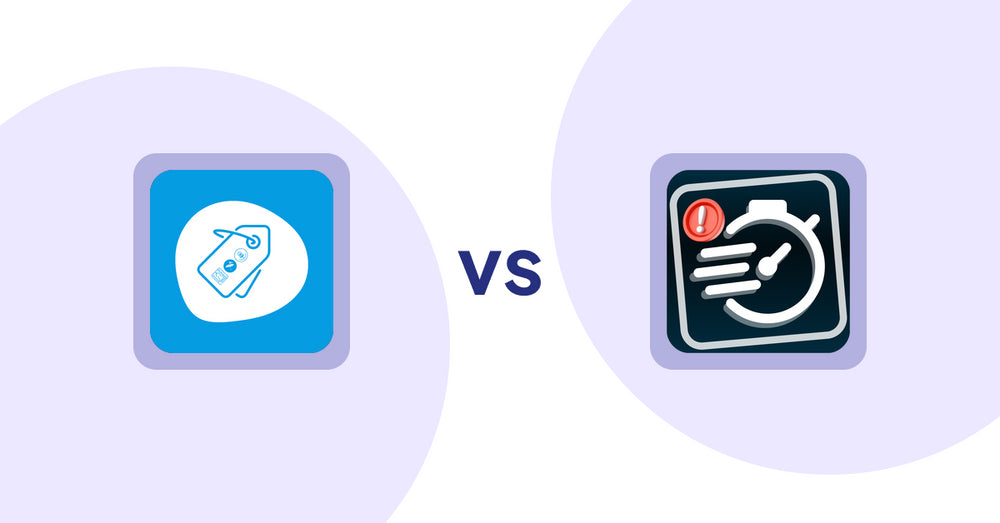
Shopify Product Display Apps: Extendons Product Tag Images vs Urgency! Low Stock Counter
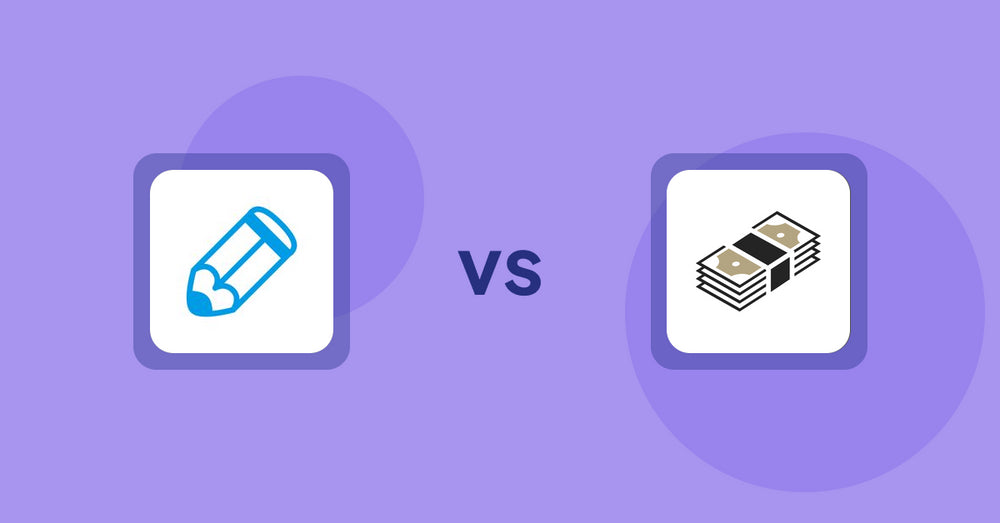
Shopify Product Display Apps: Writer Sofia vs シンプルクラウドファンディング|お手軽自社クラファン

Shopify Product Display Apps: Writer Sofia vs Wordsmith: Content Generator
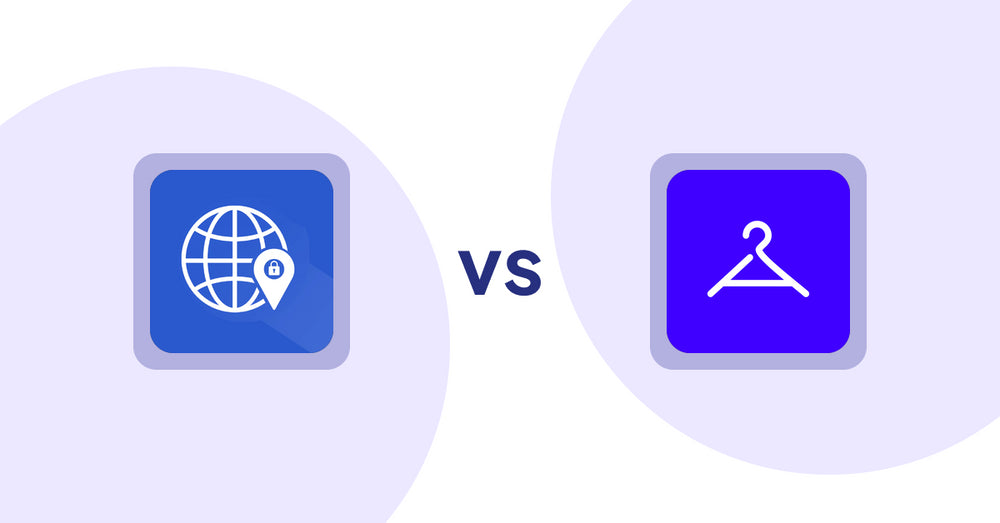
Shopify Product Display Apps: Addify ‑ Country Restrictions vs Aiuta
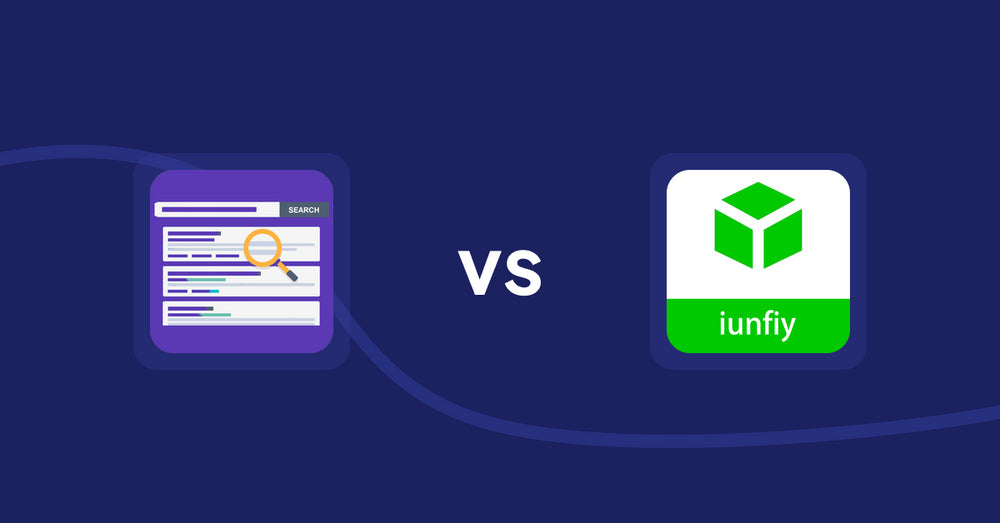
Shopify Product Display Apps: Spark AI Products Description vs iunfiy • Related Products
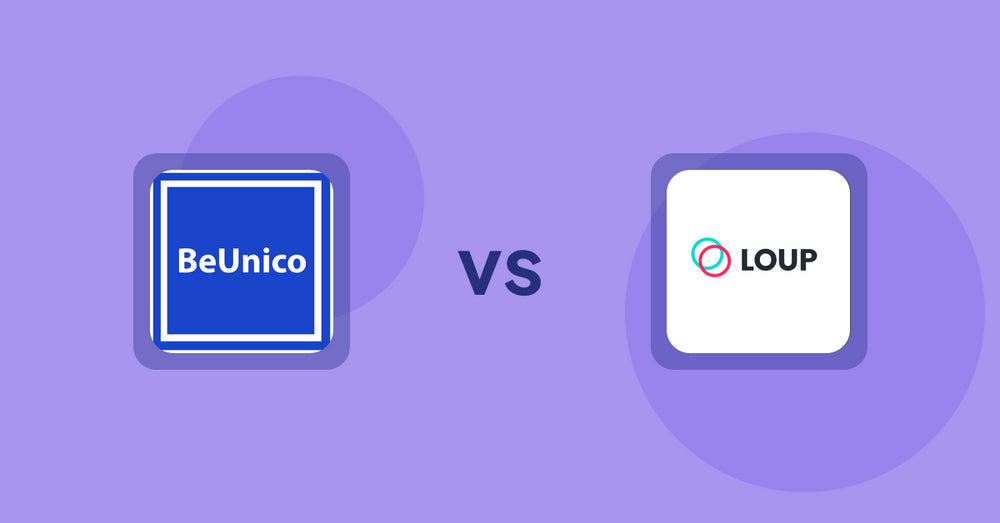
Shopify Product Display Apps: BeUnico vs Loup: Sell on Instagram
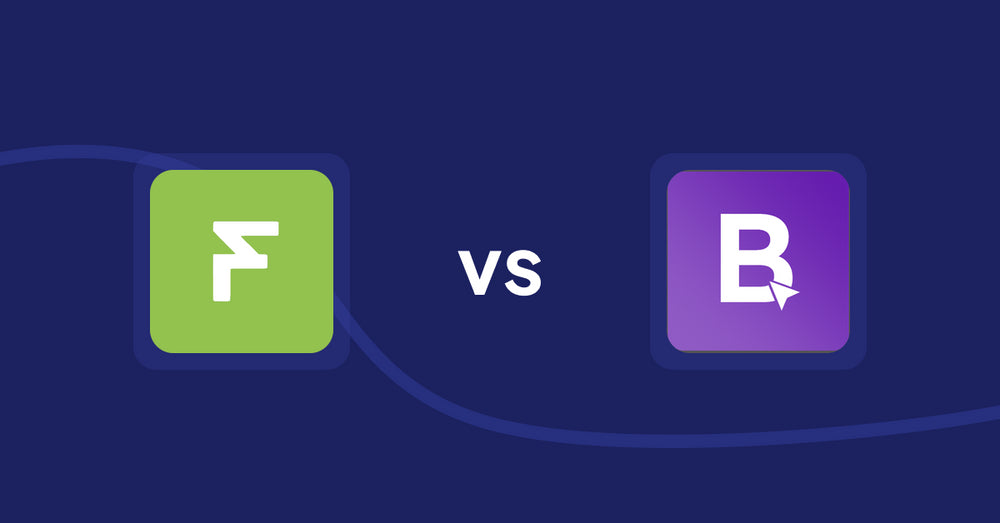
Shopify Product Display Apps: Easy Estimate Shipping vs BookE ‑Rent Property & Service
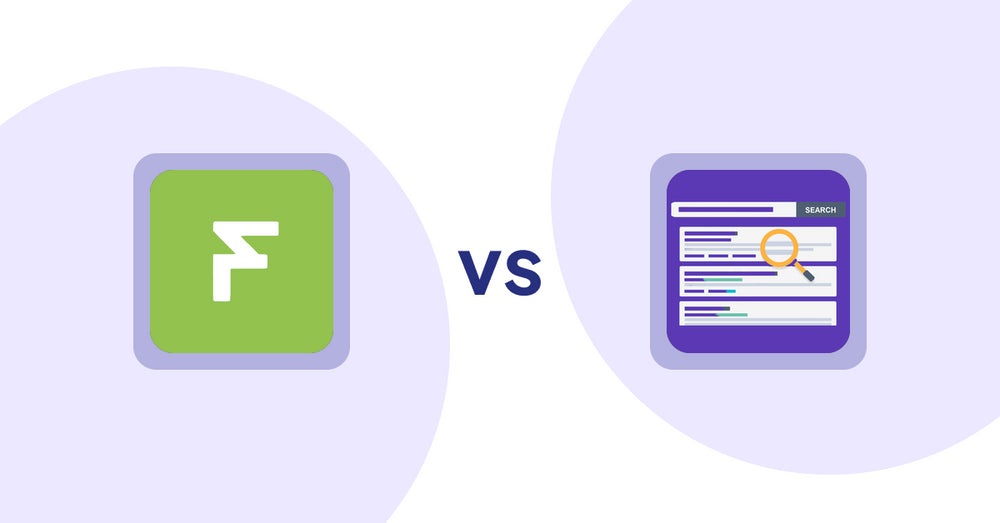
Shopify Product Display Apps: Easy Estimate Shipping vs. Spark AI Products Description
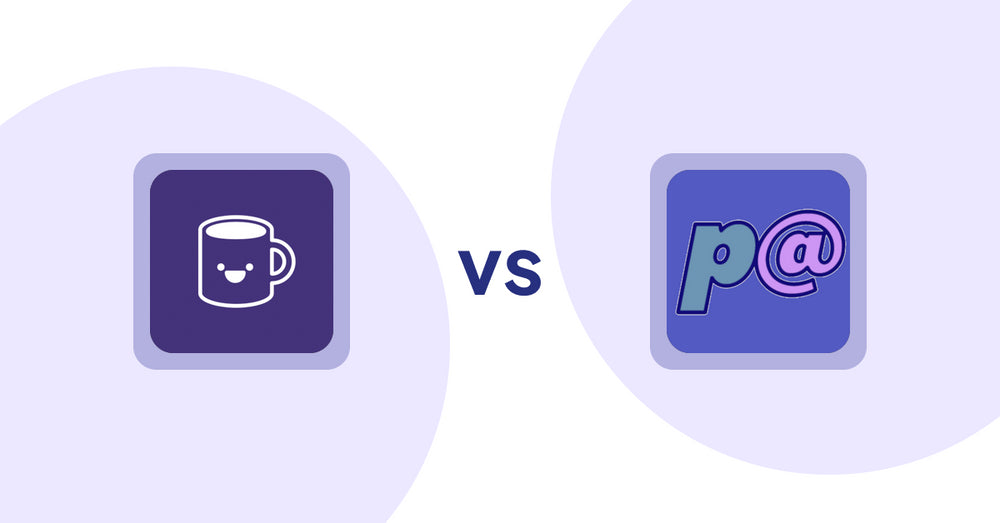
Shopify Product Display Apps: Mugshot Bot vs Parameterizer
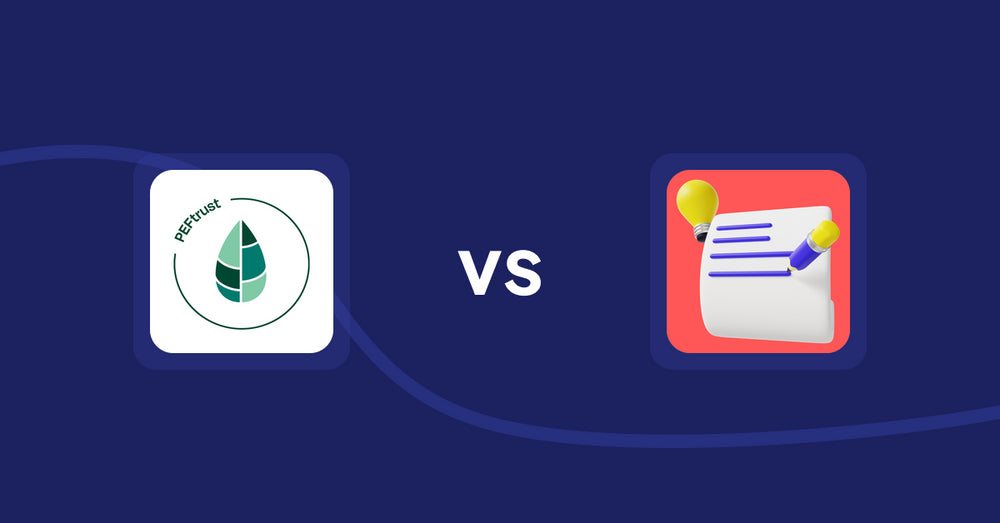
Shopify Product Display Apps: Peftrust vs. Wordo ‑ ChatGPT AI Description

Shopify Product Display Apps: Quick Product Navigator Slide vs Reelify ‑ Shoppable Reel Video
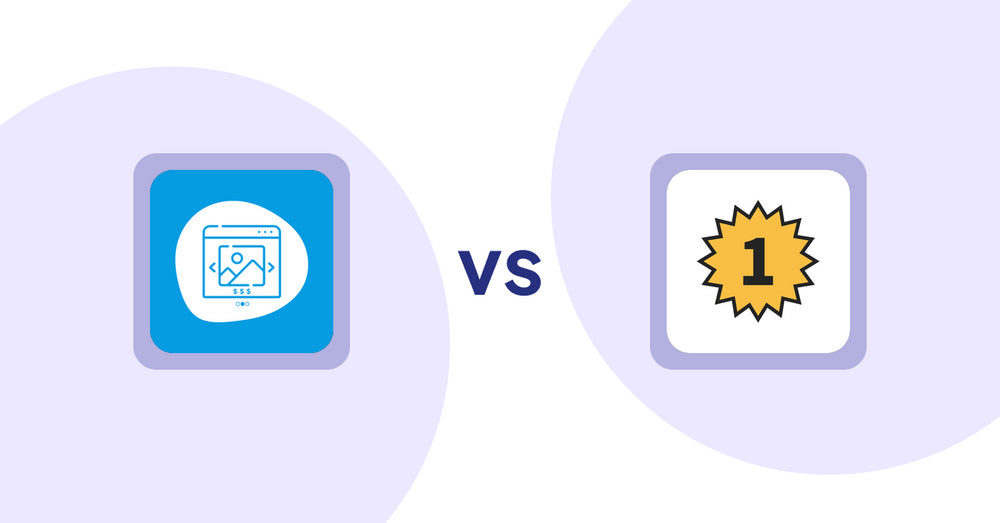
Shopify Product Display Apps: Quick Product Navigator Slide vs. UR: Smart Ranking
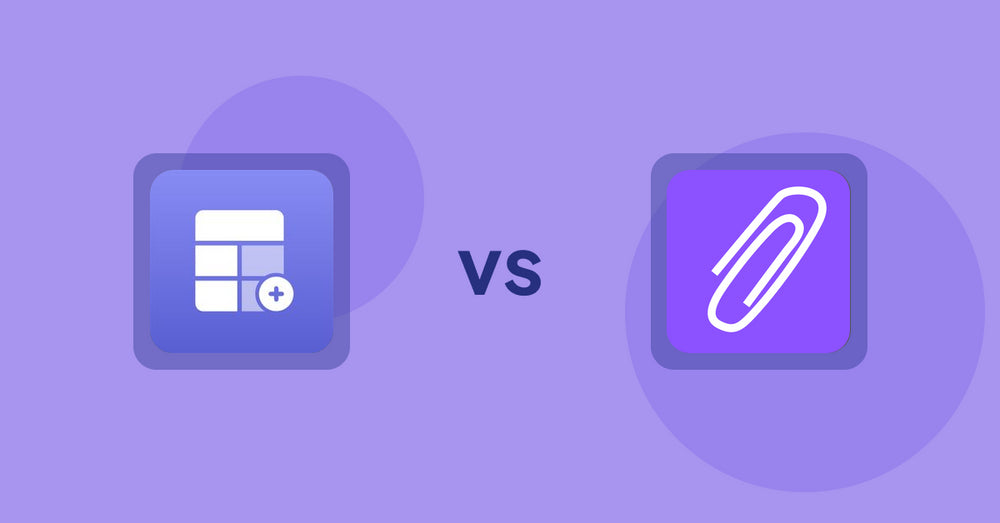
Shopify Product Display Apps: Eazy Specification Tags Table vs Agile Attachments
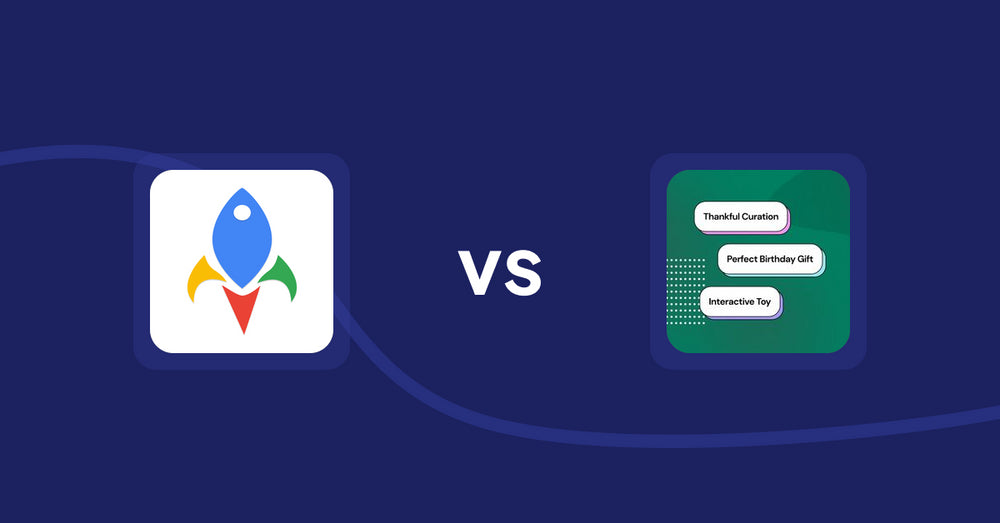
Shopify Product Display Apps: Jedi Back In Stock Admin Alert vs FeatureFrame ‑ Pretty Product
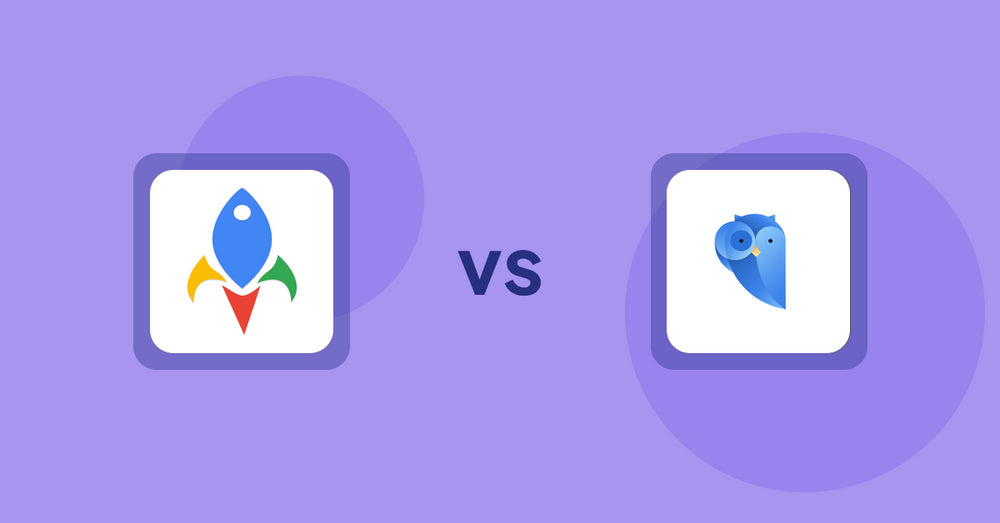
Shopify Product Display Apps: Jedi Back In Stock Admin Alert vs. Findify Search & Merchandise
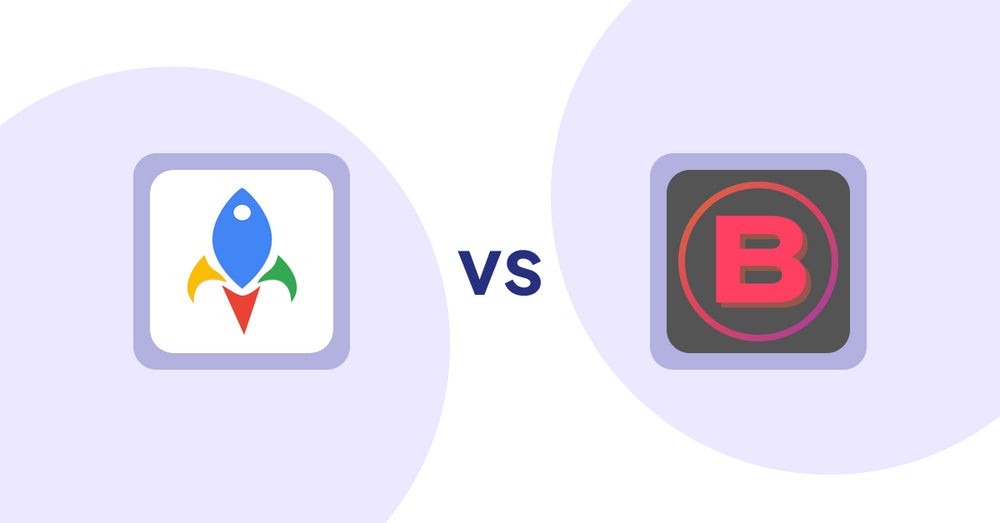
Shopify Product Display Apps: Jedi Back In Stock Admin Alert vs Banter Stories
